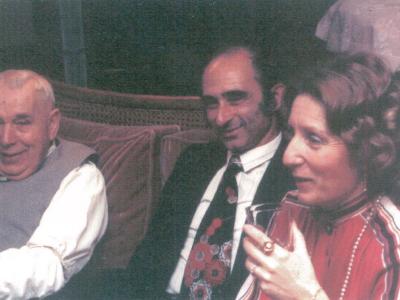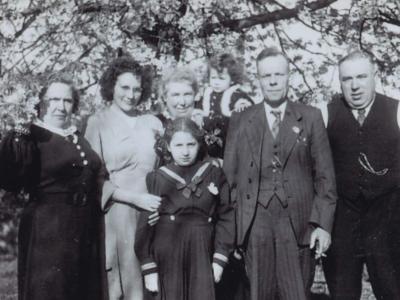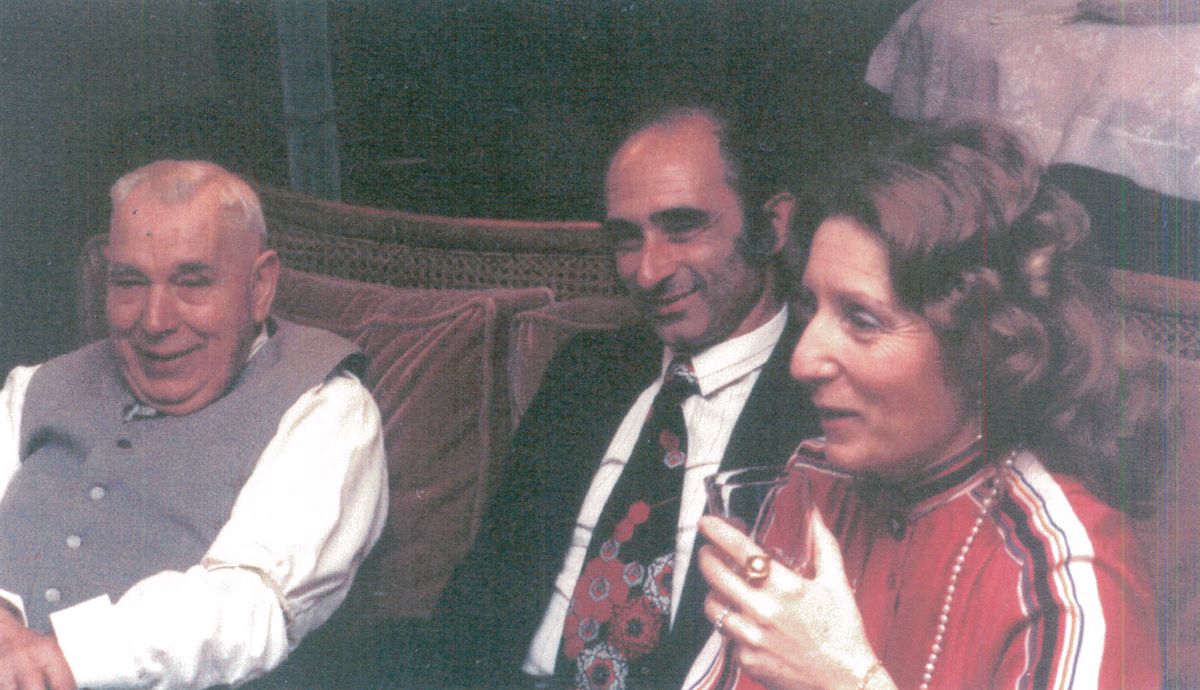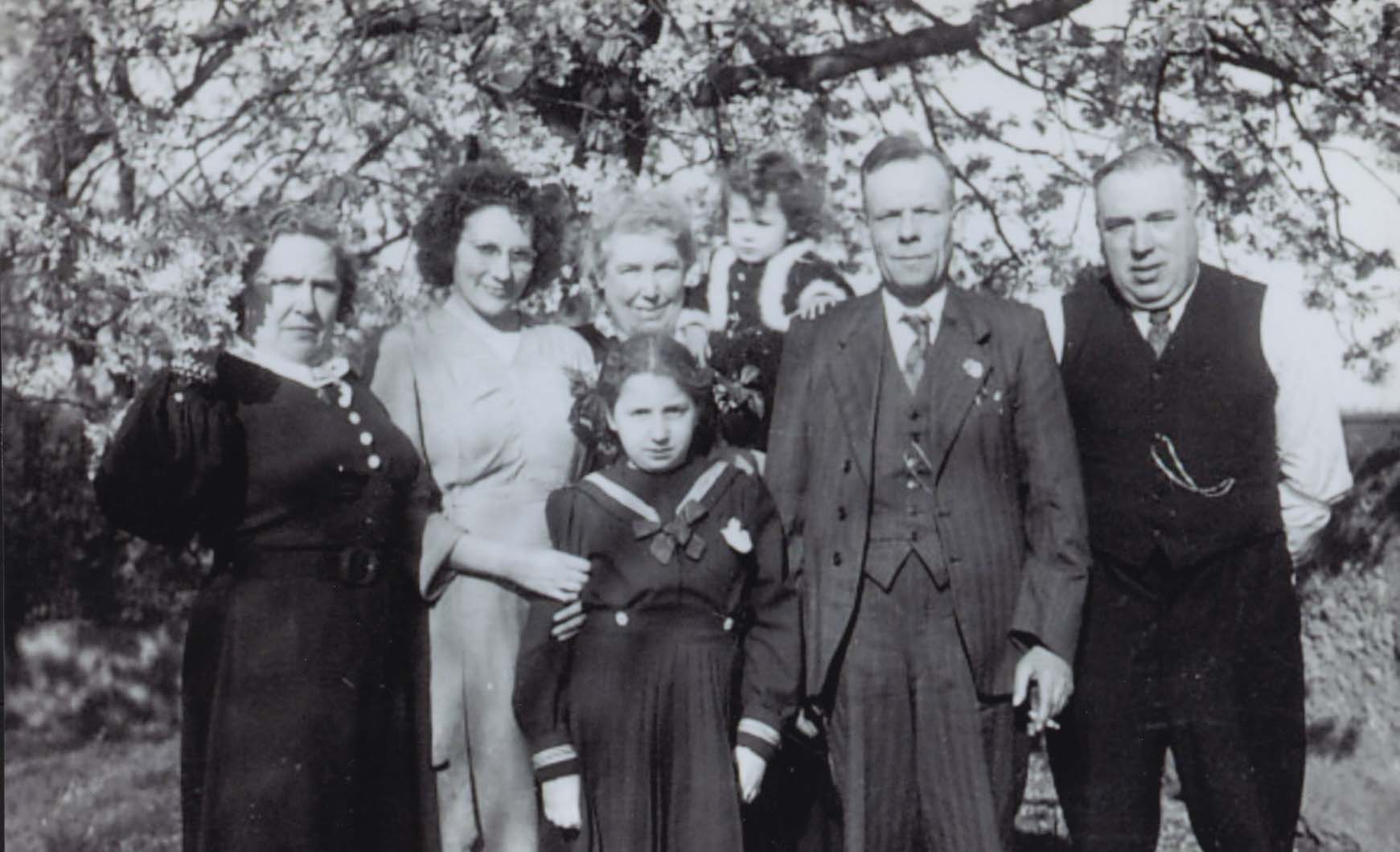
- Date
- 25 January 2025, 14:00-18:00 (CET)
- Location
- House of European History, Rue Belliard/straat 135, 1000 Brussels, Belgium
Regina Sluszny is a WWII ‘hidden child’ who managed to avoid persecution in German-occupied Belgium. In 1991, with the founding of the First International Gathering of Children Hidden During World War II (New York, United States), the forgotten children of the time attained a voice and a face, and a public forum that allowed the traumas to begin to be processed. Since then, Regina continues to testify about the Holocaust and children who went into hiding. She warns against intolerance, discrimination, racism and antisemitism.
The event, part of the series “Through the lens of”, will take place in French and Dutch on the museum’s 6th floor. Regina Sluszny will share her story for 45 minutes, illustrated by a selection of images, followed by a 30 minute Q&A.
Practical Information
- Registration is required.
- 14h00 - Dutch - register
- 16h00 - French (FULLY BOOKED)
- Entrance to the museum and participation in the event are free of charge.
- Suitable for adults and young people as from 12.
- This event will take place on the 6th floor.
Discover more
You can retrace the lives of Brussels-based 'hidden children' with the IWalk application, developed by the House of European History, and now available in French, Dutch and English. It can be downloaded for free on Google Play and Apple Store.
A book of Regina and her husband’s life story will be available for purchase in the museum shop in English, French and Dutch.
About Regina Sluszny
Regina Sluszny was born in 1939. Her parents came to Belgium from Poland in the early 1930s, where they had worked on market stalls. During the German occupation of Belgium, Regina went into hiding with her parents and her brothers. When the whereabouts were betrayed, the family had to flee. However, Regina stayed with neighbours Charel and Anna, where she was safe. Meanwhile, other family members stayed at 15 different hiding addresses, but they survived the war.
Regina later married Georges Suchowolski, who lost much of his family in the Holocaust and in war violence. Together they had two children. She has had an active career ranging from working in the diamond industry and starting the first kosher Chinese restaurant in Antwerp.
Over the years, her commitment to testifying about the Holocaust and about children in hiding grew. She brings her story to schools and associations, as well as at official ceremonies. Regina is vice-president of the non-profit organisation “The Child in Hiding” and president of the Forum of Jewish Organisations. In 2022, she was appointed ‘Baroness’ by King Phillippe of Belgium.
About the “Through the lens” of series
“Through the lens of... is a museum programme at the House of European History where we invite speakers with an exceptional story linked to one of the bigger narratives present in the museum. Telling personal stories within the museum’s galleries allows the audience to learn about narratives and themes presented in the exhibition through the perspective of the speaker’s personal experience. On occasion, the team also use this opportunity to diversify the voices present in the current exhibition.
- Photo frame shown during Vredescentrum interview, Antwerp, Belgium 2022
- Regina Sluszny image
- Suchowolski-Sluszny family image (Kasserne Dossin collection)
- Suchowolski-Sluszny family image (Yad Vashem Collection)
- Suchowolski-Sluszny wedding photo
Extract from “Forgotten War Children” by Paul De Keulenaer
Before World War II, an estimated 70,000 Jews lived in Belgium. About 56,000 people were registered as Jews by the Sicherheitspolizei-Sicherheitsdienst (Sipo-SD). Between 1942 and 1944, many of them would be transported in 28 convoys from the SS-Sammellager Mecheln (the Dossin Barracks - Kazerne Dossin). The occupying forces deported 24,908 Jews, among them 4,259 children. That means one in six deportees was a child. Thanks to aid organisations and private individuals, adults, families and children could go into hiding secretly and escape the deportations. The number of Jewish children thus able to be saved has been estimated at 5,330.
Forgotten War Children is the written story of Regina Sluszny and her (late) husband Georges Suchowolski: two of those Jewish children in hiding, who for many years received no attention. After all, they had survived; they had been ‘lucky’ compared to those who perished in the concentration and extermination camps.
It took Regina and Georges long years of laborious silence and painful processing to come out with their stories and to (finally) search for a lost identity. Forgotten War Children (Vergeten oorlogskinderen) is the result of numerous meetings, conversations and reflections, of a dialogue with the author Paul De Keulenaer.
Banner image credit G. Kleinblatt




